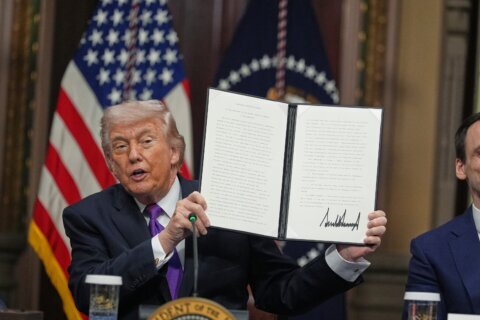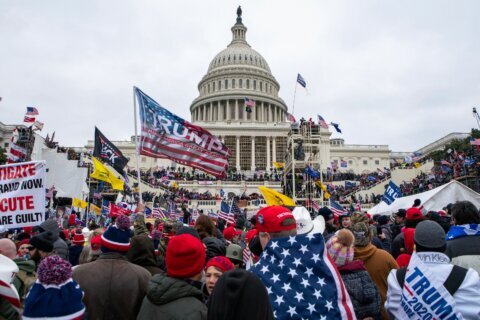WASHINGTON — The Virginia General Assembly returns to Richmond Wednesday to consider amendments to new ethics rules sparked by the corruption convictions of former Gov. Bob McDonnell and his wife Maureen.
During the breakneck day known as veto session, lawmakers will also try to reverse the 17 bills vetoed by current Gov. Terry McAuliffe and consider amendments he’s proposed to dozens of other bills.
McAuliffe offered amendments to ethics legislation passed in the closing minutes of the General Assembly session this winter that would cap the total amount of annual gifts allowed from lobbyists at $100, instead of a $100 cap on each individual gift.
The bill still includes a number of exceptions to the gift limits. It would also require that all disclosure forms be posted online.
Quentin Kidd, professor of political science at Christopher Newport University, says he expects McAuliffe’s changes regarding gifts will be accepted.
“It’s going to be hard for the General Assembly to say ‘No, we want to make it possible for us to receive more gift money,’ and the governor to come back and say, ‘look, I’m trying to reign in the expensive gifts’,” he says.
But there are some legitimate concerns about some of the proposed changes, Kidd says.
Groups representing local government leaders, for example, worry that the ethics legislation as written will make it harder for those local leaders to take trips that are now routinely paid for by third party groups.
Other bills the governor would amend include a privacy bill that would ban certain types of data collected by police, but would allow license plate readers. The bill that passed the General Assembly unanimously required data from the license plate readers, which can track cars across the state, be deleted after seven days unless it is part of an ongoing investigation. McAuliffe would extend that period.
He also suggested amendments to a unanimously-passed bill regarding drone use.
In addition to deciding whether to accept those amendments, and make them law, the General Assembly also has the chance Wednesday to override McAuliffe’s 17 vetoes.
An override requires a two-thirds vote, which Republicans are expected to easily reach in the GOP-led House of Delegates, but would require a several vote swing in the Senate, which is nearly evenly split between Democrats and Republicans.
Vetoed bills include the so-called “Tebow bill” that aims to create more opportunities for home-schooled students to play high school sports; gun bills regarding permits, sales and driving with a loaded shotgun; and bills that McAuliffe calls unnecessary like a ban on Virginia implementing the Common Core education standards and a ban on local governments requiring contractors to pay workers prevailing wages.
Other vetoed bills include redistricting changes ahead of this fall’s General Assembly elections and a requirement that voters submit photo identification to obtain an absentee ballot.







